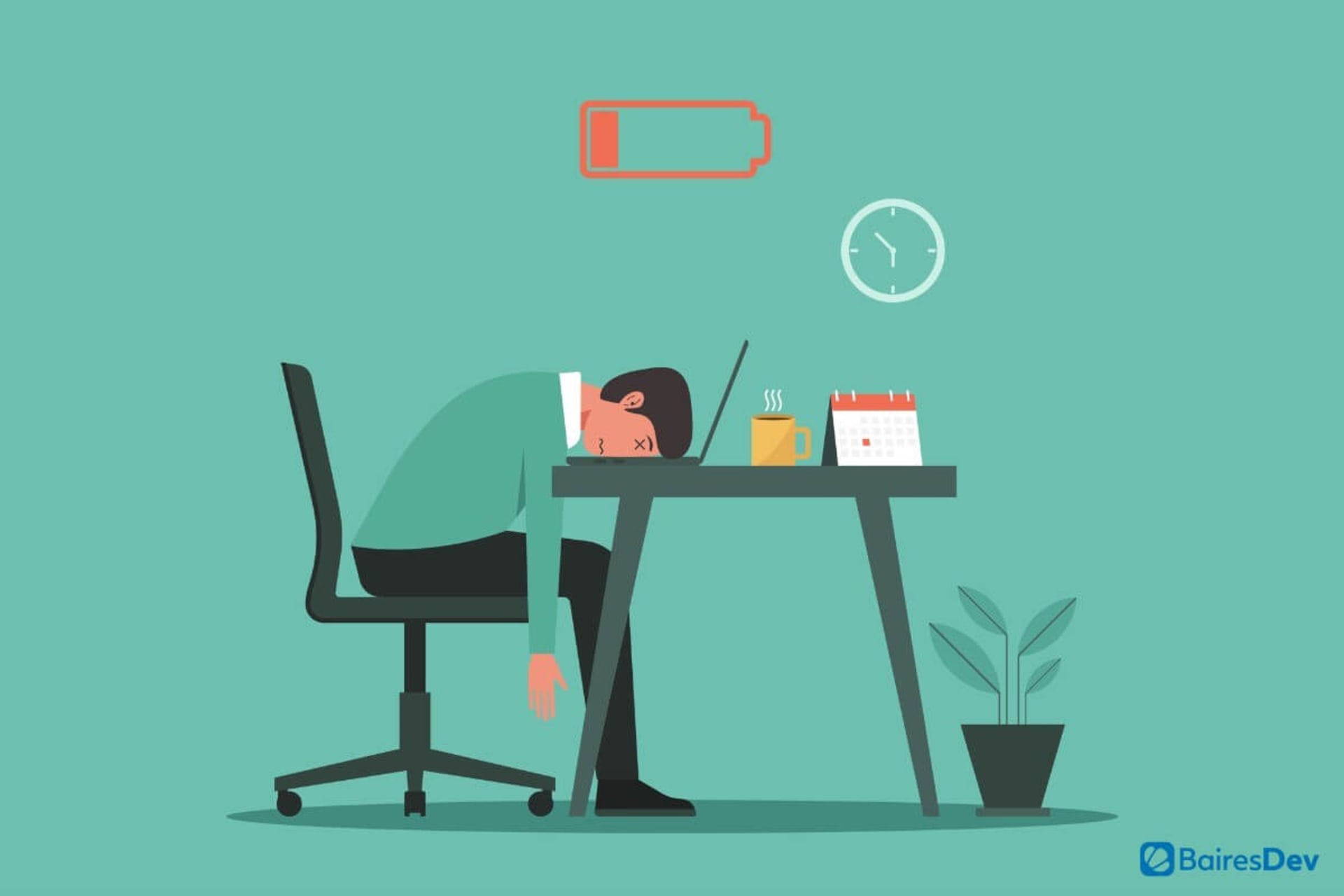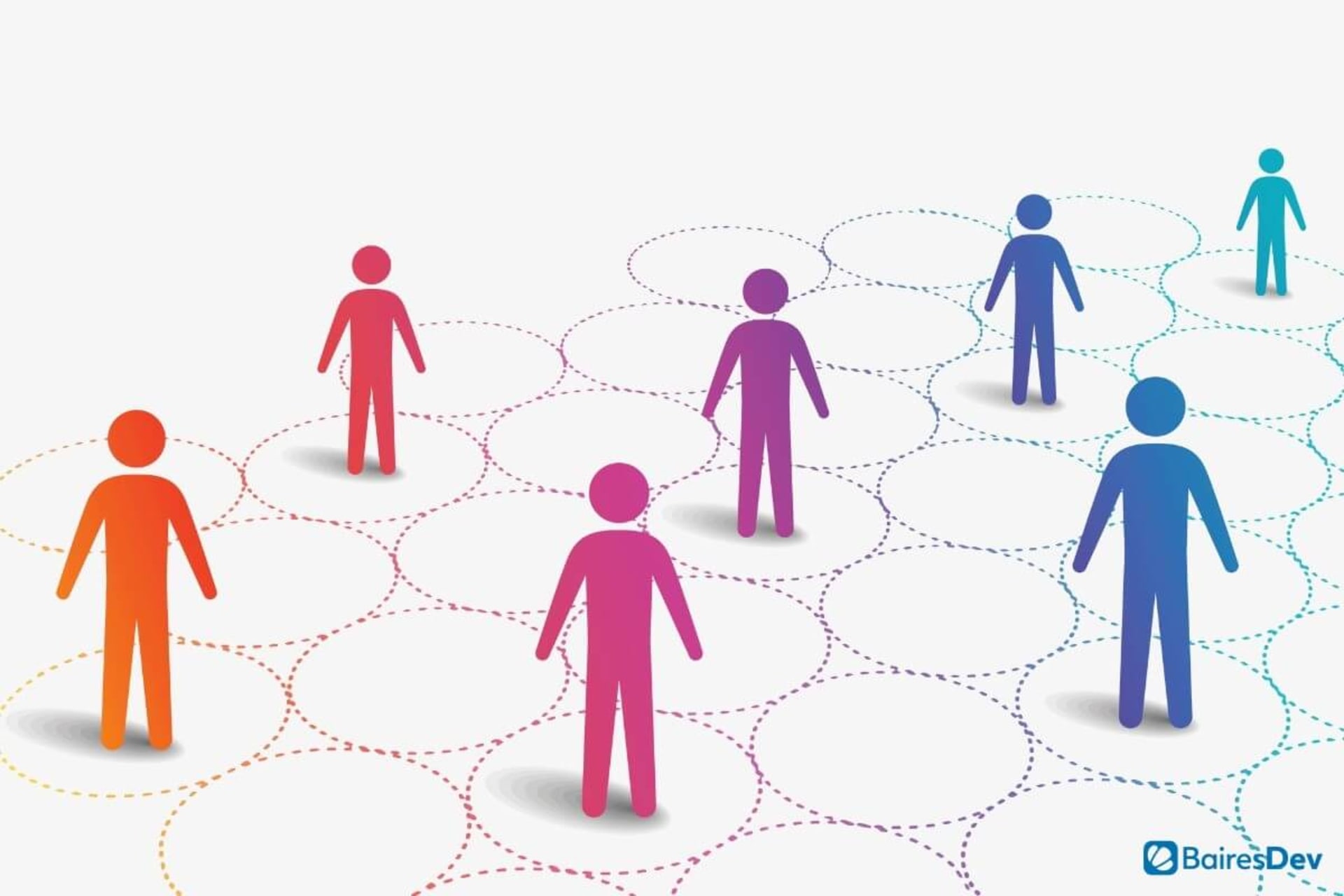I woke up one day and I just couldn’t anymore. Waking up felt like a burden, I was feeling anxious about going to the office (when going to the office was a thing), I just wasn’t feeling it anymore, I just wanted to sleep and watch the days go by.
One day I forgot the excitement I felt whenever I wrote code, watching my work as it’s compiled and seeing the end result. It was just gone, my passion turned into a routinary workflow, it may have been the same motions, but it definitely wasn’t the same experience.
If you just thought “that sounds like depression”, you’re not alone, and that’s why it’s so easy to misdiagnose burnout. Yes, both conditions share some very similar symptoms, which should tell you just how soulless a person with burnout feels.
Fortunately, I found myself again, and I’m enjoying life like never before. Burnout, much like depression, is a serious condition, but it’s not permanent and with the right help anyone can overcome it.
What is Burnout?
Burnout isn’t something that just happens, it creeps on you, slowly. At first, it was very hard to notice. For me, it began as fatigue and boredom. For others, it can feel like sadness or a couple of restless nights.
While it may be different for each of us, ultimately, the destination is the same: a complete lack of interest, sadness, fatigue, stress, apathy, and an inability to enjoy your life.
Let’s get one thing off the way: burnout is not about work, in fact, for many people their workplace is a safe haven, a place where they engage in activities that help them prevent burnout. And that’s the kind of culture we should aim for.
Anything can trigger burnout, but most often than not, it’s linked with high levels of stress, lack of sleep, demanding environments, and difficult moments in one’s life. And that’s precisely how developers tend to describe their work environment.
There is no way to sugarcoat it, software development is extremely demanding. Some of my best stories are about listening to music with my team while we debugged. But some of my worst memories involve sleepless nights and having to put in extra hours to meet a deadline.
And that’s another thing, even on the best days, those extra hours take their toll. Yes, it was fun, yes, it was necessary, but that extra energy I had to spend had to come from somewhere, even it was future me.
Detecting the Early Signs of Burnout
As I said before, burnout is very hard to detect. You start by rationalizing what’s happening to you, “Hey, I’m tired, that’s all”, “I need vacations after this”, “My dad had to do more every day, one day won’t kill me”.
You take vitamins, you exercise, and you start to feel better, but that’s not because you’re cured, but because you’re changing your behaviors. But the deal is, even if you lie to yourself, others will start to see chinks on the mask.
People will notice that you’re less productive, showing less interest, delivering late, and avoiding work. They’ll notice your mood swings, that you’re grumpy and sad, that you take feedback too hard or ignore it altogether, that you make weird mistakes. It’s all signs that you’re not ok.
As a manager, we have to be the voice of consciousness for the people with whom we work. And that means understanding what’s going on with our coworkers and helping them ease their stress one way or the other.
For example, a good friend of mine who is a software designer can get really immersed in his work. He could quite literally spend 24 hours in front of his computer working and feeling good about it. His manager noticed that he was making too many mistakes and that’s when they decided to intervene.
One day, the manager brought a few CD cases to my friend’s desk and “ordered” him to install them. It was a bunch of games, and he established a schedule for my friend to just sit down and play every day in the office.
What the manager did was show my friend that the work could be done differently, in this case by taking a few minutes every day to play a game and decompress. That’s what most of the team did, and that’s what my friend started doing as well.
A decrease in productivity and a change in mood is a clear sign that a person isn’t feeling ok. People are quick to label low productivity as laziness. But being lazy is just a quality, the real question is what’s causing it.
What to do? In some cases, it’s just enough to listen. Managers who embrace a culture of open communication will have very little trouble approaching their coworkers and offering an empathic ear.
In other cases, professional help might be required.
Seeking Professional Help
As managers, we can listen to our coworkers, give them a few days off, assign them to a new project, relieve them of some responsibilities, and so on. With a bit of luck, one change is all a developer needs to start feeling motivated again.
In other cases, it’s more difficult, as severe burnout can be very hard to overcome and might require professional help.
Many companies offer psychological counseling or hire a life coach to provide help and guidance to their workforce. In other cases, the company covers part of the cost of therapy.
That might seem like too much, but it’s actually an investment. I would rather help a great developer overcome their slump and stay with us than have to train someone new from the beginning.
In any case, it’s going to take a while, and in the meantime, we can be supportive and promote a comprehensive environment that fosters healthier habits.
What Else Can We Do?
Aside from being perceptive, two things can really help prevent burnout.
First, raise awareness about the condition. The more the team understands what burnout is, the easier it is for everyone to identify it in themselves and others.
Second, promote an open communication culture where fellow coworkers can feel safe about sharing their feelings. Promote stress relief activities like doing sports, going out on a company dinner, playing games in the office. Anything that can break the idea that an office has to be all about work.
And more importantly, design workflows that leave room for developers to rest, to spend time with their friends and families, or to decompress however they feel like. Happy people find purpose in the things they do, and nothing is more motivating than fulfilling a purpose.







